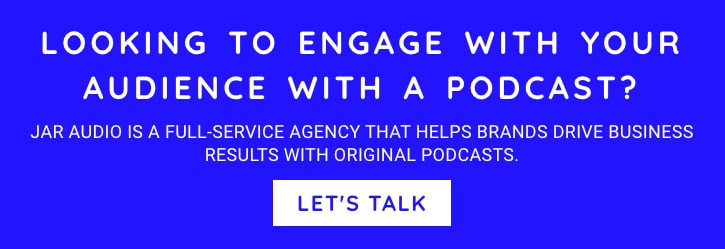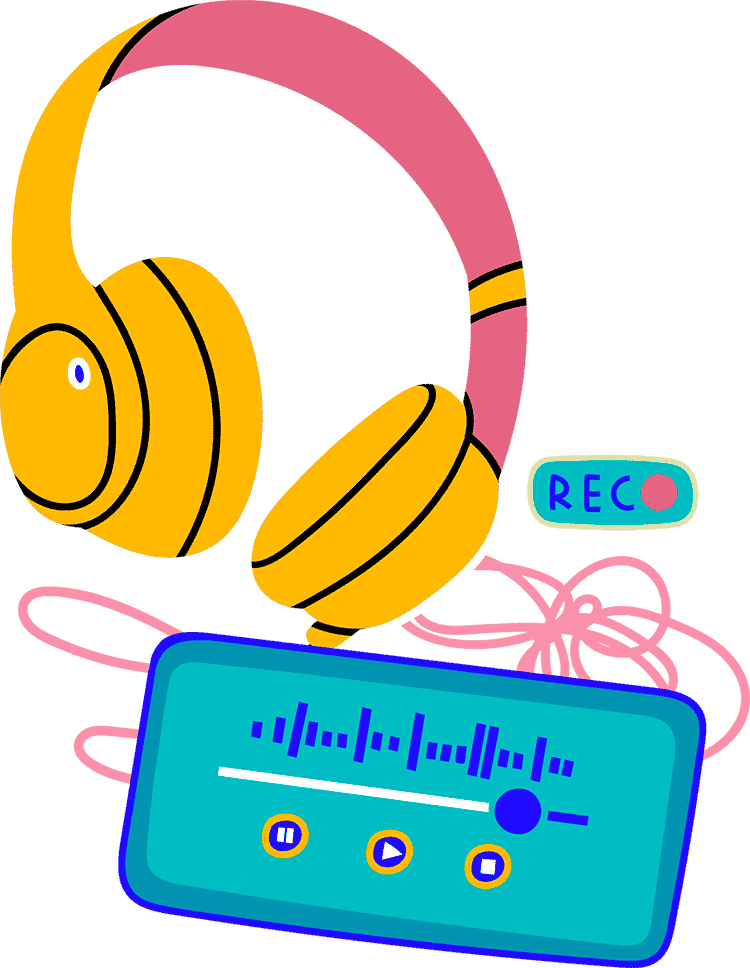You’ll want to see what’s in this new report.
If you’re considering creating a podcast — or already have one available for listeners — it’s important to understand why folks consume this kind of content.
Fortunately, a new report from NPR and Edison Research can help us do just that.
The 2021 Spoken Word Audio Report takes a deep dive into the growing popularity of non-music audio, and delivers some seriously valuable insights that can (and should) inform podcast creators everywhere.
We explore the latest data below.

Why do we listen to podcasts?
What is spoken word audio?
In short, spoken word audio (not to be confused with the poetic performance art known simply as spoken word) is popular audio content other than music.
For the sake of this report, this means anything in these categories:
-
News
-
Sports
-
Talk/Personalities
-
And audiobooks
Included in this umbrella is our favorite creative medium — the podcast, of course.
Now that we have this covered, let’s take a look at why listeners tune into this kind of content, and why this is an industry that continues to grow.

We multitask while listening to spoken word audio.
We really love to multitask
One of the main reasons we turn to spoken word audio is that it allows us to multitask.
In fact, 71% of survey respondents cited this as a primary motivator for listening.
One participant, Faith, gave NPR and Edison a deeper look into why this feature appeals to her.
“I really started picking [spoken word audio] up when my life became more hectic and I just didn’t have time to just sit down and relax and just watch something like I used to,” she said.
She went on to explain that “me time” is important to her but that she likes to be productive while consuming her favorite content.
“Sometimes I don’t want my me time to be just watching something,” she added. “It makes me feel like I’m wasting time. Especially as a mom … I have to be doing something.

Why do we listen to spoken word audio?
We want to feel connected
Connection was also an overarching theme in the new report — an unsurprising motivator, especially in the wake of the pandemic.
Of survey respondents:
-
62% felt that spoken word audio was made for people like them
-
60% said they think it offers perspectives other media doesn’t
-
55% tune in thanks to hosts they identify with
-
And 43% said that this kind of content helps them reduce loneliness
One survey respondent shared how spoken word audio makes her feel amid what she describes as a “surface society.”
“A lot of the times, it feels like your friend is talking to you,” she said. “And at a deeper level than most people talk to their friends.”
Clearly, all of this drives home the importance of creating a podcast tailored to your audience. (And we can help you do just that.)
But this isn’t the only way connection popped up.
Spoken audio listening isn’t always a solitary act. In fact, a massive 51% of folks said they’ve spent time listening with someone else.
And for the record, we’re huge believers that you can bond with just about anyone over a favorite podcast.

We listen to spoken word audio to grow.
A medium for the people
It’s clear from respondents’ answers that what we have here, with podcasts and other spoken word audio, is content created to benefit its audience.
Podcasts pack the flexibility and accessibility folks today need — and offer so much more than a laugh, a cry, or an opportunity to check out.
Want to learn more? Explore the podcast consumption stats all brands should know.


